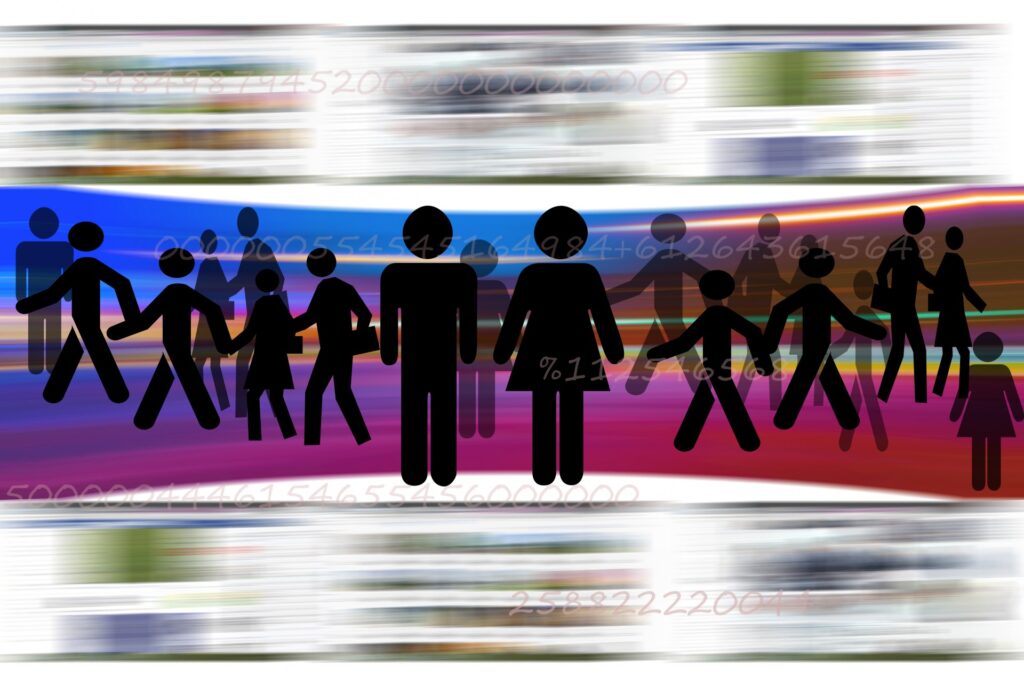The Song of Life Ahmad Al-Khatat A song you’d be thrilled to hear, with eyes sharing their sorrows to the nightingale a grief’s mouthpiece takes me to innumerable nostalgia We hear the lyrics of the song, as clothes become wet from sobbing to the morning daylight, not moonless nights... Wings In the Wind Periodically, I see everything all at once I know every corner I walk by myself I turn my skull before I make a rational conclusion, I wrap my finger to assemble my achievement in Montreal and Baghdad. When my generation was removed, It erased my innocence, It erased my imagination, Shatter my days into black as soil Death has forgotten about Wings in the wind, after it demolished my written poems to homeless signs as if I am playing marbles barefoot. The Finest Cigarette On the first day of the new year, I light the finest cigarette up and sip a cup of black coffee by myself, then write about hope on the typewriter. The night born with stars and torn them The children of world recall their little pets While the children of Iraq & Syria remember the dates of their siblings' death in the war. I no longer run after the birds and butterflies My days are low, like the tears of a dying angel My life is no longer delightful and brief Even love has been eliminated from my universe. No one seems to care about my flying wings Everyone is celebrating the night we shattered The wooden floor sustained your bitterness tears This oppression made me an alcoholic and hopeless. Another cigarette, another bottle of Russian whiskey Another great rhythm and blues to listen to alone Waiting for the time, and walk missing from the pub Destiny undresses my flesh and leaves me as rotten skulls. Ahmad Al-Khatat was born in Baghdad, Iraq. His work has appeared in print and online journals globally. He has poems translated into several languages such as Farsi, Chinses, Spanish, Albanian, Romanian. He has published some poetry chapbooks, and a collection of short stories. He has been nominated for Best of the Net 2019 and was also nominated for the Pushcart Price 2020.
Poetry from Ananta Kumar Singh
Love is a waste of time It's like a Dynamic Love is a waste of time It's like a Landmine Love is a waste of time It's like a Summertime Love is a waste of time It's like a book lines Love is a waste of time It's like a Quarantine.
Poetry from Emmanuel G.G. Yamba
Poetry ~ Tears ~ How do I say this As peace roll out of my life While I wear a garment of pain To sleep in the bed of sorrow Having my room spray with depression Blocking the sound of melodies in my ear Left in the hands of the bed sheet To give me cold after being soak with Nile from the eye The road to happiness is block with every man foot No one to consider the cripple rather whip the crush stick out of their hands The only one that appear on the scene is the one that wet my face And inspire these broken lines carrying my thoughts far off In the land where nature controls creature So I’m lost of sound stanzas
Poetry from Gabriel T. Saah
-Dreams- © Gabriel T. Saah (Marvelous Inker) Beautiful heart warming pictures that don’t let you sleep, Tiny strong willed creatures that won’t allow you speak, They push you for it, hold you down for it, But won’t let you quit. Inexhaustible vehicles with you as the driver, That make you think of only doing better, Like a fair mother and good father, They push you continuously to growth. Radiant morning sun rays that spark courage and help you forget mere broth. Silent fires that blaze with intense heat, That cleanse your inner and make you neat. Sonorous lullaby, that pinch your eyes not to shut, And beautiful babies that need serious attention as you go about.
Story from Pathik Mitra
SHEHZAADA, ABDUL & LINCOLN
In economics classes & management level presentations I have often encountered the term birds-eye view & insect-eye view. Just for academic purposes, these two terms are used to indicate an overall broad overview (bird’s eye view) & a detailed micro level view (insect's eye view). But whenever I heard these terms images came to my mind.
A bird, may be an eagle soaring high in the sky with all his panache & ridiculing all our master creations at ground level by the sheer size of its visibility. All our skyscrapers appear as mere Lego blocks or Jenga pieces to him. Similarly the insect eye view reminded me of the blur compound vision as found in insects and an insignificant Lilliput like stature. Though both the views are relative to the literal sense and is an illusion of the truth. But Shehzaada & Abdul had actually explained these economics terms to me in Luxor, Egypt.
Since the day I had seen Brendan Fraser kiss Rachel Weiss in a hot air balloon in the movie “The Mummy Returns”, it was in my bucket list. I mean the hot air balloon and Egypt part.
So when I finally visited Egypt & booked the Hot Air Balloon ride in Luxor, I was thrilled to the core. There was fine sense of accomplishment within me. It’s common to most middle class Indians when one of their childhood dreams come true.
The excitement kept swelling as the burning fire kept swelling the inflated balloon. Most of my fantasies are linked with Hollywood movies, I switched from Mummy to the Disney’s Animation Up as we went up. As we went up the world below started getting smaller and smaller. It was dawn and the sky was pink. The sun was about say good morning.
Simultaneously as many 15-20 hot air balloons joined us in the air. All of them were vividly colourful and morning sky looked like a beautiful painting. After we finished admiring the lucid sky & vibrant neighbouring balloons it was time to look down.
A hot air balloon can go up to 3000 feet high as per Google. I don’t know how high our balloon was but view below was fascinating. The desert looked sparkling yellow with the sun just rising. The sand dunes and rocky cliffs as if resembled a hidden castle in the desert awaiting for a prince from top. Or maybe it was a dungeon where an evil magician was trying his spells. The green patches of irrigated agricultural lands added to the colour contrast and made it even more vivid. The trees, rocks, huts, houses were mere colourful dots. We could feel the wind on our faces and the fire on the top gave us warmth.
As the sky kept changing colours, my mobile camera kept clicking pictures good enough to embarrass the Instagram filters. The aura was peace and serenity personified. You could breathe in all the freshness from the morning sky, appreciating the brilliant craftsmanship of nature while the daily hassle and cacophony of the world below appeared miniscule and insignificant. The rocky desert below took me to another childhood illusion one where Aladdin flew on his magic carpet over these sparkling rocky deserts. Truly majestic or may be a bird’s eye view.
Though joy descends gently upon us like morning dew as our balloon descended the golden patch of land slowly started taking the shape of a barren rocky lifeless desert. It was then I saw Shehzaada & his friend. From the birds eye view Shehzaada & his friend resembled two princes galloping on their horses tearing through deserts may be chasing some evil magician out their kingdom holding their swords high in the air. But we descended further the horses turned into small donkeys, and my Don Quixote & Sancho Panza turned into 2 lean kids. Shehzaada was one of them & he had a dry branch in his hand which resembled his sabre from the bird’s eye view. As our balloon finally touched the ground Shehzaada & his friend stopped to greet us.
The desert was barren, lifeless & hot. For miles there was no sign of life. It was seven in the morning and already we could sense the heat. As I saw Shehzaada from the ground level it was not a hard guess that he was far from a prince. As I came closure his lean physique, dry lips, dark sun burnt skin tone and clothes with a number of holes told a thing or two about this tribal lad. Even the donkey was thin and weak. As Shehzaada’s friend approached another balloon adjacent to us Shehzaada approached us.
His meek and small eyes were pleading and his hands were touching his cracked dry lips in a gesture to indicate he wanted food or money. I never asked his name. I just assumed his name would be Shehzaada or a prince from the bird’s eye view. But while I was having the privilege of the insect’s eye view I asked what his donkey was named.
“Abdul” replied Shehzaada. Abdul stared obstinately at us and indistinct braying clearly signified that he was not much intrigued by our existence. I wanted to ask Shehzaada a lot of things. Where he lived, if he went to school, if he watched cartoons or movies, if he liked burgers, how his parents were, whether he knew of Aladdin? But unfortunately we couldn’t communicate through any common language. I don’t know even the A of Arabic and obviously Shehzaada was ignorant of English.
Most of our co-tourists were busy taking selfies so I decided to chat a little with Shehzaada. Though my efforts were futile verbally but his bright eyes told a thing or two. Unlike me, a hot air balloon was no fantasy for him. He sees it daily. It’s rather boring for him. Probably he hates most tourists too as they are reluctant to pay him a tip. Even Abdul, his companion, seemed to hate us as for the balloon he had to travel 30kms in the morning from their village. His angry stares and frequent braying justified his stance. But does Shehzaada fantasize of aeroplanes or pizzas? Probably. When I was his age I had seen “The Mummy Returns” and the hot air balloon fantasy stayed with me. But in Shehzaada’s eyes I could see his dreams were the basic amenities of life. Good food, a warm bed, basic education maybe. The dry white puss around his pale lips signified he was clearly malnourished. Poverty is just a dot from the bird’s eye view.
As Shehzaada extended his right palm towards me, I introduced Lincoln to him. Yes, Abraham Lincoln, on a five dollar bill. He took it and smiled gleefully. Probably he smiled at Lincoln. Shehzaada doesn’t know Lincoln. He does not need to. He knows Abdul and loves him. But Lincoln at that moment was significant for Shehzaada in the insect’s eye view. Probably Lincoln will fetch him some of his fantasies, may be a pizza or an ice cream! This too was my bird’s eye view and not the insect’s eye view where a poor tribal kid would value pizza more than a full meal of rice and lentil soup.
I wondered if it was a compound insect vision or a bird’s aerial view. I wondered if I were a proud eagle or an insignificant centipede. But Shehzaada hardly cared. With Lincoln in his pocket he climbed on Abdul’s back and galloped towards another descending balloon few metres away. As Shehzaada, Abdul & Lincoln vanished in the distant horizon an eagle screamed in the barren desert, merging my bird’s eye view and insect’s eye view into one stark reality. The reality that involves Shehzaada, Abdul & Lincoln in the barren deserts of Luxor.
Synchronized Chaos February 2022: Back to Browsing
One of my favorite experiences pre-Covid was visiting a library or bookstore and picking up books, fingering and flipping through and reading the backs of each title with an interesting cover or concept. This month’s issue of Synchronized Chaos provides a ‘browsing’ experience as it includes a large number of submissions, each with their own themes, style, and flavor.
FYI Synchronized Chaos Magazine will host a free public reading, “Audible Browsing Experience” to coincide with the AWP conference in Philadelphia at Head House Books. Our monthly theme for this issue is a homage to the name of the reading! We have a lineup of readers and will host an open mic if time allows. Event takes place Thursday March 24th from 6-8 pm. Please sign up here if you would like to attend as the store has limited capacity due to social distancing. Head House requires masks and proof of vaccination.

Michael Robinson describes his personal, spiritual experience of salvation and resurrection. Hongri Yuan returns to evoke spiritual ideas, a world more eternal and orderly than our own. Chimezie Ihekuna’s screenplay Saved by His Grace explores the workings of faith in the life of a pastor who loses his son. Sayani Mukherjee bears witness to the last musings of a person who dies through drinking hemlock.
Hong Ngoc Chau dreams of a future literary career and shares the spiritual and intellectual transcendence she finds through the written word. Lorraine Caputo relates vignettes of reading, writing, and traveling, village markets and hotel room sunrises. Reading Don Quixote, she shares some of Chau’s idealistic spirit.
Chris Suah’s speaker’s creative journey allows him to move through loss and arrive at a balance of grief and joy. Abdulloh Abdumominov finds joy in reading nonfiction to learn and grow as a person, while Sushant Thapa celebrates the excitement of learning from both books and life.

Amit Parmessur describes the poetic beauty of nature and literature in elegant prose. Mahbub’s free-verse speakers do the same, finding stillness and grace in hearing the flowing river, embracing on foggy days, and even facing the prospect of death. Joseph Balaz advocates in Hawaiian Pidgin through wind metaphors that readers should face life with a mixture of calm and passion.
J.D. Nelson experiments with language as symbol, with the connections between letters and words, and words and meaning. Joshua Martin draws parallels between words and syllables as the units comprising poetry and the physical plants and bricks making up ecosystems and cities.
Howard Debs brings a historical perspective to the January 6th, 2021 mob attack on the U.S. Capitol. Patricia Doyne speaks of the history behind the racial categories of ‘black people’ and ‘white people’ and protests racism within the U.S.

Ryan Quinn Flanagan offers up observations of mini-scenes and encounters within the United States’ interior. Mark Young crafts work in a similar vein but on a smaller scale, looking at insects and impressionistic personal experiences.
D.S. Maolalai covers domestic quietude and drama: brewing tea and sunrise alongside romantic betrayal and storms. Linda Hibbard writes of the near-universal awkwardness of junior high school, not being a sheltered child anymore but not yet a young adult. Arthur Russell paints a portrait of a New York couple who has found an uneasy truce with middle age and each other.
J.J. Campbell conveys the loneliness that can come with singleness, illness, and caregiving, while Edwin Olu Bestman evokes the loss of belonging and sense of self that can come with the end of a romance.

Robert Ragan admonishes the ‘man in his mirror’ to grow up and move beyond an impossible love to focus on the life in front of him. Ahmad Al-Khatat also writes of the journey towards emotional maturity, how a gentle and mutual romance inspires him to become a more caring person.
In another piece, Khatat mourns the tragedy of sexual assault. Judge Santiago Burdon’s poetry also laments violence, poverty, and heartbreak some women suffer. He also speaks humorously of the confusion a man feels when his female partner reveals her interest in the Wiccan religion.
Amos Momo Ngumbu Jr. expresses his wish for the blind to regain their sight. Christopher Bernard urges each of us to take what steps we can to improve our world.

Jason Visconti celebrates the ‘electricity’ of a passionate human connection, while John Thomas Allen writes of the rich drama of a day in the life of a dumbwaiter. John Culp shouts out about his romance with exuberance. Ian C. Smith reaches for past memories and future knowledge that lies just out of his grasp, while Frankie Laufer speaks of our physical and psychological ‘collections’ – classic rock music, dolls, love and nostalgia.
Andrew MacDonald describes the way our minds make sense of complex, random human or natural events. Lorette C. Luzajic renders Hieronymus Bosch’s jumbled art into lengthy but taut poetry. Jack Galmitz observes the world around him with the eyes of a philosopher or painter, calling to mind Hume and the masters who painted country scenes.
J.P. Lowe reflects wryly on his past animal companions and how Bukowski’s experience with cats and dogs runs counter to his own. J.K. Durick also ponders his past, ruminating on society’s leftovers: what has changed and stayed the same as he grew up. Abigail George renders her past in an impressionistic essay, chronicling and reflecting on her search for family and romantic love as well as her development as a writer. Ivan Fiske ponders the history of Liberia from its connection to the liberation of American slaves to its present-day struggles and resilience.
Our hope is that this issue’s many resplendent offerings will inspire your own creative journey.
Poetry from Ivan S. Fiske
Drowning
this poem
is like the deep blue sea
rolling with numerous history
lingering in its sleeves.
at the depth of this poem
are dead bodies swimming to freedom,
bodies that have bumped themselves into death
while escaping the jaws of slavery,
this poem, too, is a graveyard
like the deep blue sea,
this poem is a diary
of many lives that never returned home
& dreams the sea waves have destroyed;
dive to the depth of this piece
you will see pieces of mama Liberia
swimming to the shores of freedom
wanting to be independent like the sun
with corruption glued to her skin;
she’s wearing a floater, but
her body is befriending the sea’s bottom.
